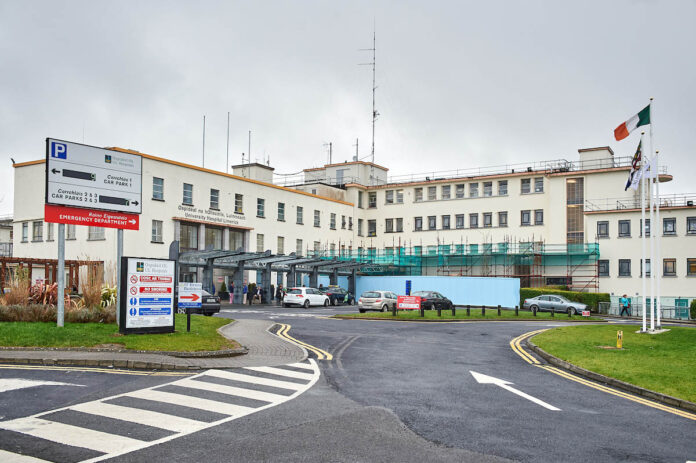EIGHT out of every ten nurses working in University Hospital Limerick (UHL) felt exhausted at the end of the day, according to the findings of a new survey.
The findings of this INMO survey coincide with ongoing chronic overcrowding in UHL which hit a high last week of 84 patients on trolleys.
The UL Hospitals’ Group announced earlier that week that UHL would be closed to inpatient visiting for a number of days, while the hospital managed multiple outbreaks of Covid-19 and influenza across the site.
The INMO stated, “Not only have our members been placed under enormous pressure owing to a global pandemic, but now, the endemic of consistent overcrowding is significantly impacting the mental and physical health of staff.”
To gain an insight into how nurses felt, the INMO surveyed members in a number of public hospitals.
In University Hospital Limerick, 80.64% stated that they always or often felt worn out by the end of the day, and 61.29% stated they always or often felt exhausted at the thought of another day at work.
In University Hospital Galway, 96.32% stated that based on their professional judgment, the current staffing levels and skill mix in their area were not appropriate for meeting clinical and patient work demands. Of these, 65.75% felt that patient safety was put at risk “often,” “very often” or “always”.
At a meeting convened at the request of the Irish Nurses and Midwives Organisation, the Oireachtas Joint Committee on Health heard how persistent hospital overcrowding is impacting nurses and midwives and patient safety.
INMO General Secretary Phil Ní Sheaghdha said if a patient is on a trolley for more than five hours it can have a significant knock-on impact on their health and indeed their mortality.
“State agencies such as the Department of Health, HIQA and the HSE need to step up to their responsibilities they have here and take decisive action.
“Our nurses and midwives are under severe pressure; they are dealing with huge numbers of Covid and non-Covid patients presenting at emergency departments coupled with inadequate staffing levels.”
The group explained appropriate infection control precautions are being followed to minimise the risk of spreading infection among staff and patients in UHL, and also within the wider community. The situation is being monitored and reviewed daily, and the group will relax the restrictions as soon as it is safe to do so.
The only exceptions to the visiting restrictions are parents visiting children in hospital, people assisting confused patients and people visiting patients who are at end of life or are critically unwell. All exemptions are limited to one person per patient only.
UHL also continues to experience exceptionally high attendances at its Emergency Department (ED), with daily attendances across the past week averaging approximately 232. These patients are presenting with more severe and complex illnesses than heretofore, and a higher proportion of admitted patients are requiring longer stays for treatment and recovery.
By Dan Danaher

